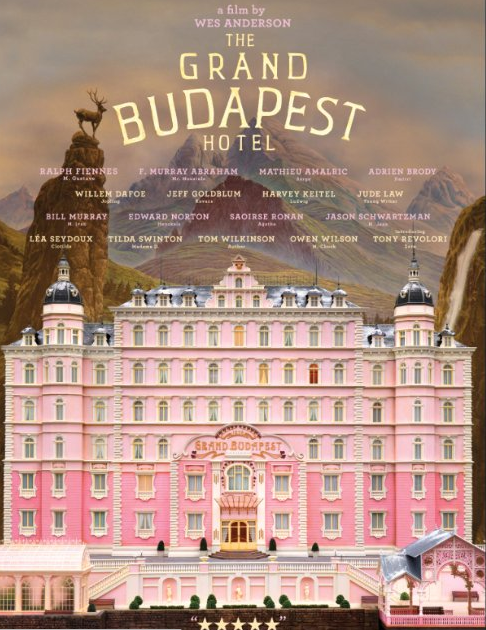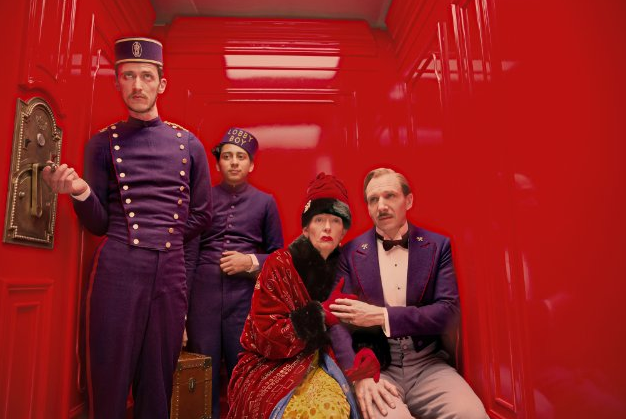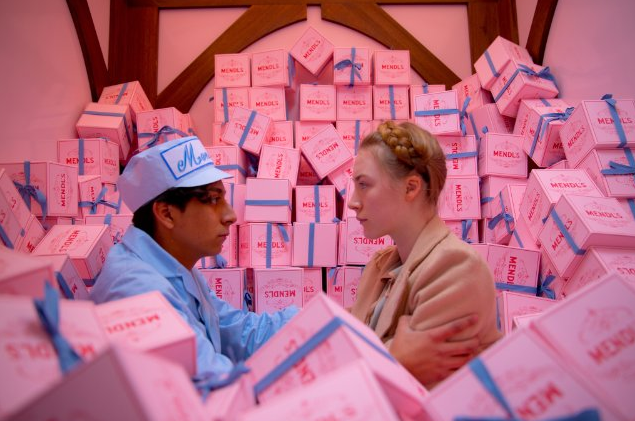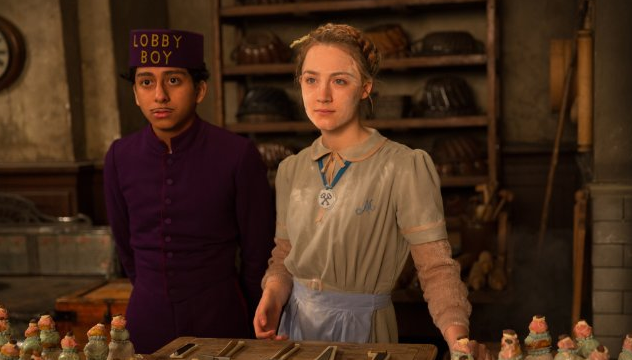
THE GRAND BUDAPEST HOTEL (2014) R
- Directed by: Wes Anderson
- Screenplay by: Wes Anderson
- Starring: Ralph Fiennes, Tony Revolori, Saoirse Ronan and Edward Norton, among many, many others.
- Scott Rudin Productions, Indian Paintbrush and Studio Babelsberg.
- Inspired by the writings of Stefan Zweig with story by Hugo Guiness and Wes Anderson.
- Now a Golden Globe 2014 winner for Best Film, comedy or musical.

From left to right: Paul Schlase, Tony Revolori, Tilda Swinton and Ralph Fiennes. THE GRAND BUDAPEST HOTEL is the story of a grand hotel and the adventure of its famous concierge.
The story is told many years after the events took place, during the beginnings of World War II by the former hotel Lobby Boy and sidekick, Zero (played by Revolori) of the great M. Gustave (played by Fiennes). As is characteristic of Anderson’s other films, THE GRAND BUDAPEST HOTEL is a vibrantly colorful adventure with a strong ensemble cast. When I say colorful, I am not simply referring to the characters, although they are all rich and vibrant, I am also referring to the color used in the film by the director of photography and director. Anderson’s films are easily identifiable by his unique style, which includes a vibrant use of color, whimsical music, and a rather unique sense of absurdity. Absurdity is Anderson’s way of constructing satire.

The absurdity is emphasized by often dead-pan and genuine acting that emphasizes the grandiose and exciting plot. Sharp cuts and exaggerated details also help to create a unique auteurism in Anderson’s films.
Unlike Anderson’s other films however, THE GRAND BUDAPEST HOTEL also confronts the contemporaneous World War II. Strangely, Anderson does not explicitly call out or name Nazis, however through his creation of a symbol worshipping, rising power in the former Austro-Hungarian Empire , it is evident that he is dealing with the Nazis. The Nazi power is not Anderson’s focus in the film, but simply an environment for his plot to take place in.
This film had a long list of wonderfully funny and tender moments brought about by an extremely talented and remarkable ensemble cast. Anyone who enjoys Anderson’s work will find a particular gem in his latest film.
For those of you who would like a more thorough overview of the plot that contains spoilers but id absolutely wonderfully written, I would to direct you to the review in The New Yorker written by David Denby entitled “Lost Time- THE GRAND BUDAPEST HOTEL and THE WIND RISES”.
